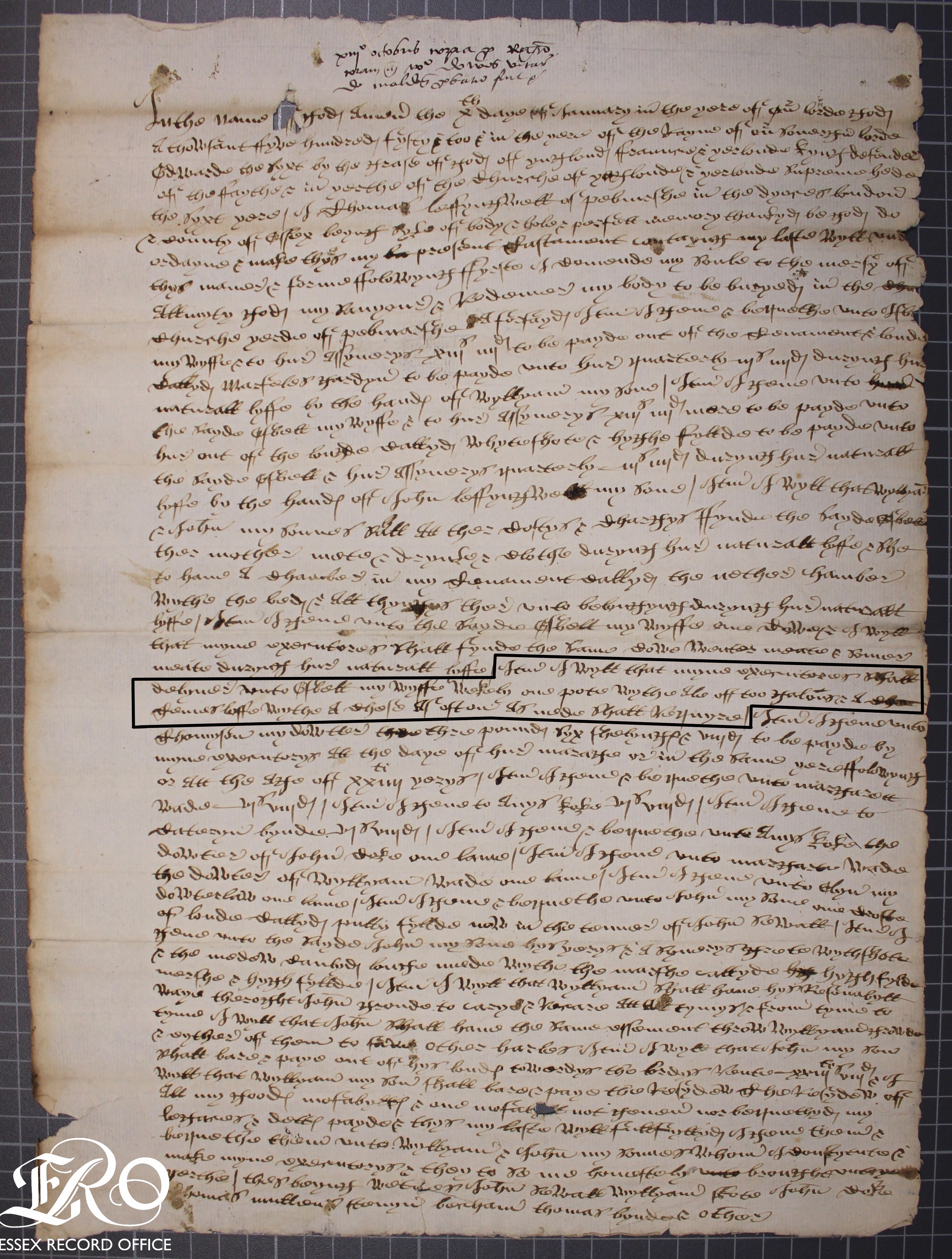Chris Lambert, ERO Archivist
The ERO’s collection of wills, stretching from 1400 up to 1858, is widely used by family historians, but also by those trying to get closer to our ancestors’ material lives and their mental worlds. In particular, wills can tell us about the language that they used. A query from our friends at the Oxford English Dictionary recently brought this example to our attention.

Will of Thomas Leffyngwell of Pebmarsh (catalogue ref: D/ABW 23/83)
It comes from the will of a man from Pebmarsh called Thomas Leffyngwell, made in January 1553 when he was sick and probably close to death (will reference D/ABW 23/83). Having made over his landed property to his two sons, his main concern was to provide for his wife Isabel. The two were to pay her, in quarterly instalments, a pension of £1 6s.8d. (half each), and to provide her with food, drink, clothing, a room called ‘the nether chamber’ with a bed, and a cow that they were to keep fed, winter and summer. And then, as if thinking that perhaps more detail was needed:
‘… Item I wyll that myne executores shall / delyuer unto Osbell my wyffe wekely one pote wythe ale off too galons & a [word struck through] / Temes loffe wythe a chese as often as nede shall requyre …’

Close-up of the section of the Will of Thomas Leffyngwell concerning “Temes loffe”. Right-click the image and open in a new tab to see an enlarged copy
All perfectly clear, except just possibly that bit about ‘a temes loffe’. ‘Loffe’ is easy enough if you give it a long ‘o’, but ‘temes’ may puzzle you as it certainly did us. It turns out that this is the earliest known reference to a ‘temse loaf’, meaning ‘a loaf made of finely sifted flour’. To temse, you see, was to sift, and a temse was a type of sieve, especially as used for bolting meal. A ‘temse loaf’, therefore, was one of several contemporary expressions for a better sort of bread – a class distinction as well as a culinary one, even in the 1500s.
The word temse itself, of Anglo-Saxon origin, survived into the 20th century, although seemingly restricted latterly to the brewing industry. The burial register from Pebmarsh unfortunately did not, and so we do not know whether Isabel lived to enjoy her ration of bread, cheese and ale. One can only hope that Thomas’s careful instructions were useful to her as well as to the makers of dictionaries.
